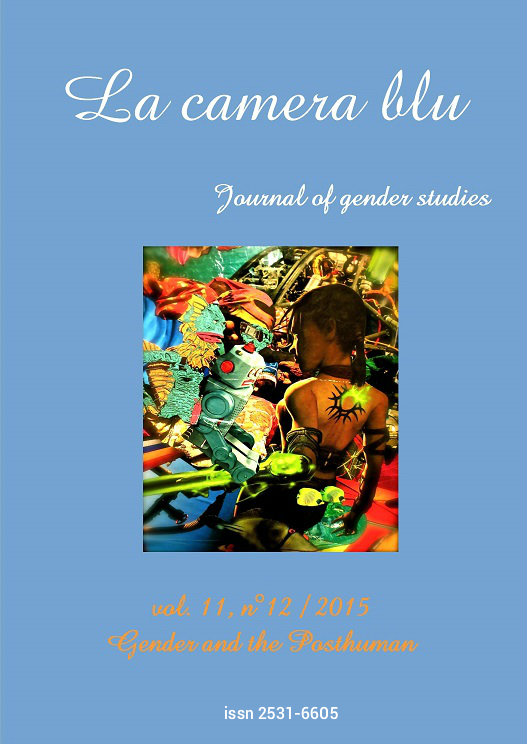Quattro tesi sul femminismo postumano
Abstract
Questo saggio si propone di dimostrare che il femminismo non si riduce all’umanesimo, essendosi spinto fino alla critica radicale dei suoi concetti-chiave. Si indaga quindi il modo in cui le analisi femministe e postcoloniali, grazie all’impulso del poststrutturalismo, hanno messo sotto esame il modello dell’“Uomo di ragione” ed elaborato visioni alternative dell’umanità, centrate su zoe come principio guida, capaci di andare oltre il genere, senza dimenticare le variabili di sesso, razza e classe. In conclusione si spiega come tali teorie rappresentino i presupposti della filosofia femminista postumana, riassumendo in quattro tesi le sue peculiarità principali.
Downloads
Copyright (c) 2015 La camera blu. Rivista di studi di genere

This work is licensed under a Creative Commons Attribution 4.0 International License.

Questa opera è distribuita con licenza Creative Commons Attribuzione - Non opere derivate 4.0 Unported.

